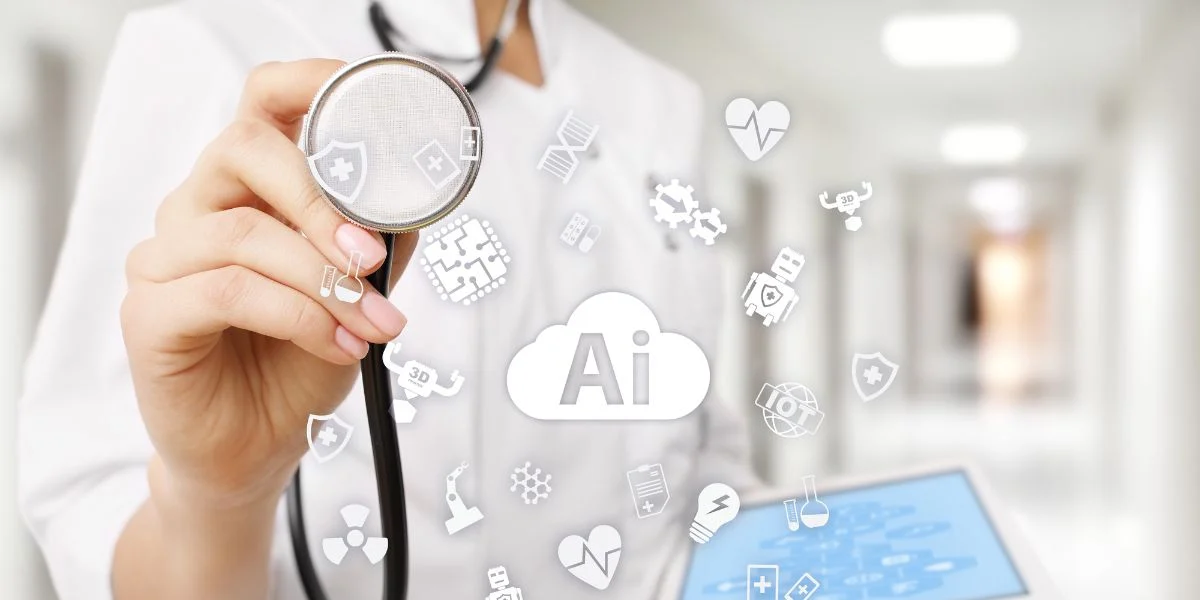6 Ways Technology is Changing the Healthcare Industry
Living in a world that is continuously digitizing, there are many ways in which a business and industry can benefit from developing technology. Be it architecture or entertainment, by employing technology to the core functions of the company can enhance the productivity of the sector.
The same can be said about the technical advancements in the healthcare industry. Ranging for improved operational efficiency to setting standards in patient care, the advancements of technology in the healthcare sector as enhanced the entire experience for both patients and medical professionals.
It won’t be a lie to say that the future of healthcare lies in making the best of healthcare technologies to perform challenging and complex medical functions and embracing it to stay relevant in the years yet to come.
Are you afraid of robots taking over the jobs and having their minds to turn everything metallic? Where this is just a fraction of the dystopian truth, the truth lies beyond the fear of the unknown times known as the future.
No matter how scary the future may seem, technological developments are a necessity to stay relevant to this fast-paced world.
Technology and healthcare industry
Technology can only aid to make our lives better. It is an achievement that can transform the mediocrity of the world, making a better place to function. As for the medical and healthcare industry, it holds the potential to turn an unsustainable system to become a haven providing the patients with cheaper, faster and effective solutions for incurable diseases—technology can lead to healthier individuals in healthier communities.
In this post, we are going to discuss six ways in which technology is changing the healthcare industry. So without further ado, let us begin with the six ways technology is enhancing the healthcare industry.
-
Artificial intelligence
It can be said that artificial intelligence holds the potential to renovate the healthcare industry. AI algorithms are able to excavate the medical records, design treatment plans and create drugs ways faster than before.
Google’s DeepMind is an amazing example that created an AI for breast cancer analysis. The algorithms outperformed all human radiologists on pre-selected data to identify breast cancer, on an average of 11.5%.
With that said, it is clear that AI can help the industry in opening new windows discovering tremendous potentials making healthcare more accessible to common people.
-
Virtual reality
Virtual reality is a technology that hasn’t only changed the entertainment and gaming worlds, but it is an essential aspect of the healthcare industry.
VR is being used to train future surgeons to become more efficient specialists. Similarly, trained surgeons use VR technology to practice a complicated case before performing complex surgery. There are many companies that are developing software that are offering promising results.
Not just that, the technology is also benefitting the patients and has proven to be effective in pain management. Women are equipped with VR headsets to visualize a soothing landscape to pass through the labour pain. Apart from gastrointestinal, neurological and post-surgical pain have also shown a decline in the pain level with VR to distract them from painful stimuli.
-
Augmented reality
Augmented reality is a little different from virtual reality in two different ways. First, it doesn’t lose the reality factor, and second, it delivers information as fast as possible. This makes AR a driving feature for the medical industry.
Where virtual reality helps the medical professionals do the job in a virtual way, augmented reality can help them to enhance their capabilities for a real-life operation. Using AR, the students or learning surgeons have a detailed and accurate, albeit virtual, the depiction of the human anatomy, giving them a real understanding of the human body without an actual body.
-
Healthcare trackers, wearables and sensors
The future of the healthcare industry is thoroughly linked with the empowerment of the patients while enabling the individuals to take care of their health through technology. The healthcare trackers, wearables and sensors are an essential part of the healthcare technology that can help us know more about us and retake control over our lives.
Whether you want to manage your weight or your stress levels, there is a lot of gadgets and devices to meet all your medical needs. Healthcare devices such as a smartwatch monitoring the heart rate and calories intake or anti-viral face mask protecting from the contaminants of the environment are some of the best examples of these gadgets.
With the help of these tech-fuelled gadgets and monitor the health at the comfort of your home while sharing the reports with the physician can help the people to take control over their lives and make more informed decisions.
-
Revolutionizing drug development
The process for drug development and research is too long and elaborate. However, today the technological methods used in developing new drugs and testing them are and will be dominating the pharmaceutical landscape in the years to come.
There are numerous corporations that are using Artificial intelligence to develop new drugs and therapeutic solutions in less time while saving the costs in development as well as human lives.
-
The nanotechnology
Where the introduction Microbots are making up iron man’s suit in Avengers: infinity war took the world in its awe, the Nanotechnology in the healthcare industry has been responsible for saving lives since 2014.
A great example of this is Max Planck Scallop-like Microbots designed for swimming through the bodily fluids. Small, smart pills and pill cams are also used for colon exams in a patient-friendly way. Not just that, the MIT researchers also invented an electronic pill that can be controlled wirelessly to release drugs and find proper diagnoses for a problem in response to a smartphone command.
Final word
We are living in a world where evolution is unavoidable. With revolution as a part of the healthcare industry, greater things can be expected in the future. Where fear is the natural response to anything unknown, it is also important to embrace the new technology and developments in the healthcare industry, which will usher the real era of the art of medicine.
Author Bio: Melisa Rich is a tech savvy and loves to write and explore about new things. She is currently employed at the I Mask Plus LLC and is highly appreciated for her work. She is a graduate form one of the prestigious institute of University of Philadelphia and holds a degree in design management.



Post Comment